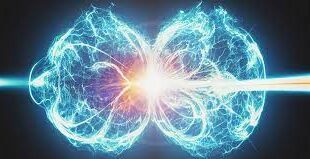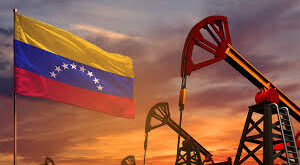Wednesday, 24 August 2022, is a bitter-sweet day for us Ukrainians. It marks the 31st anniversary of our country’s post-USSR independence.
But sadly, it will also be exactly six months since Russia invaded our country, killing Ukrainian civilians, seeking to destroy Ukraine’s critical infrastructure and violating our right as an independent country to live within its own boundaries without interference from another country. Quite rightly, most countries across the world see this as totally unacceptable.
Every day, energy companies with thousands of specialist workers relentlessly and successfully restore and rebuild sections of the nation’s power grid damaged by Russian military action. Their facilities ensure the production of domestic energy sources – gas, coal, and electricity.
At the same time, Putin is trying to weaponise energy, seeking to hold EU countries hostage by limiting gas supplies and creating division by reducing prices for some countries. He is also using threats to spread negative scenarios about energy security.
It is a very clairvoyant decision and clear message about energy security: stop buying bloody energy and gas and oil from Russia. Sooner or later, everybody will realise that under its current leadership, Russia cannot be a reliable supplier, and I hope it will come to a point where it will be a criminal offence to buy something from Russia.
It is excellent news that EU countries have agreed on concrete measures to mitigate the end of Russian gas, particularly preparing industry and consumers to do their part to use less gas this winter.
It isn’t just about using less gas, though. Ukraine will help Europe’s transition to proper energy security, free from Moscow’s blackmail and political machinations. We can do a lot right now, and we’ll be able to do even more in the near future. For example, after Norway, we have the largest gas reserves in Europe: before the war, we produced 20 billion cubic meters of gas each year. And we have those extensive underground storage facilities close to the European Union’s eastern border.
The original intention of linking up Ukraine’s grid with ENTSO-E was to funnel power from Europe to Ukraine’s war-torn grid. What actually happened was the exact reverse: Ukraine has become an exporter of electricity to Europe.
A large section of the country’s generation assets has remained stable. Combined with the drop-off in consumption, we have excess power. That’s good news for our European neighbours, particularly with today’s sky-high prices.
It gets better because this isn’t just about providing power. It’s also about environmentally sustainable power.
Our country is preparing for a future centred around renewables, which has been the focus of much of our investment for many years. Ukraine is ready to play its part in the reinvention of European energy security by providing energy and electricity derived from gas, clean renewables and wind power, and the hi-tech modular nuclear reactors in the advanced stages of planning.
For example, the Global Wind Energy Council has said almost half of the Ukrainian territory is ideally suited for wind energy. Let’s look at some more facts in the context of the EU’s energy security:
• The Ukrainian integration with ENTSO-E means Ukraine can provide additional sources of electricity for EU markets. Further grid integration with ENTSO-E can deliver an additional 7.7GW of electricity capacity for the EU.
• Potential Ukrainian electricity exports to the EU of up to 35TWh could substitute 6.5bcm of gas.
• Importantly, 83% of Ukrainian electricity is produced without CO2 emissions, using wind, solar, hydro and nuclear power generation.
• Ukraine’s government aims to build a capacity of 30GWt renewables in the country by 2032 as a significant part of Ukraine’s post-war rebuilding plan.
Ukraine can help the EU satisfy the immediate need to diversify away from Russian fossil fuels further and, importantly, reach its long-term climate objectives.
We have received unprecedented support and aid from European countries, which is very welcome. It is also essential to understand that Ukraine, too, is more than prepared to help Europe. Ultimately, we want to be able to work with our neighbours in a mutually beneficial way, providing what you need in return for the revenue we need to rebuild our country after this pernicious war.
Ukraine is ready to be a reliable partner, providing power and investing more and more into developing and deploying clean technologies. Our vision is to do our part in protecting the values of humanity, democracy and security.
European leaders have already decided to side with Ukraine against Russian aggression. The next logical step is to fully embrace the potential of the Ukrainian power sector.

 Iran Energy News Oil, Gas, Petrochemical and Energy Field Specialized Channel
Iran Energy News Oil, Gas, Petrochemical and Energy Field Specialized Channel



